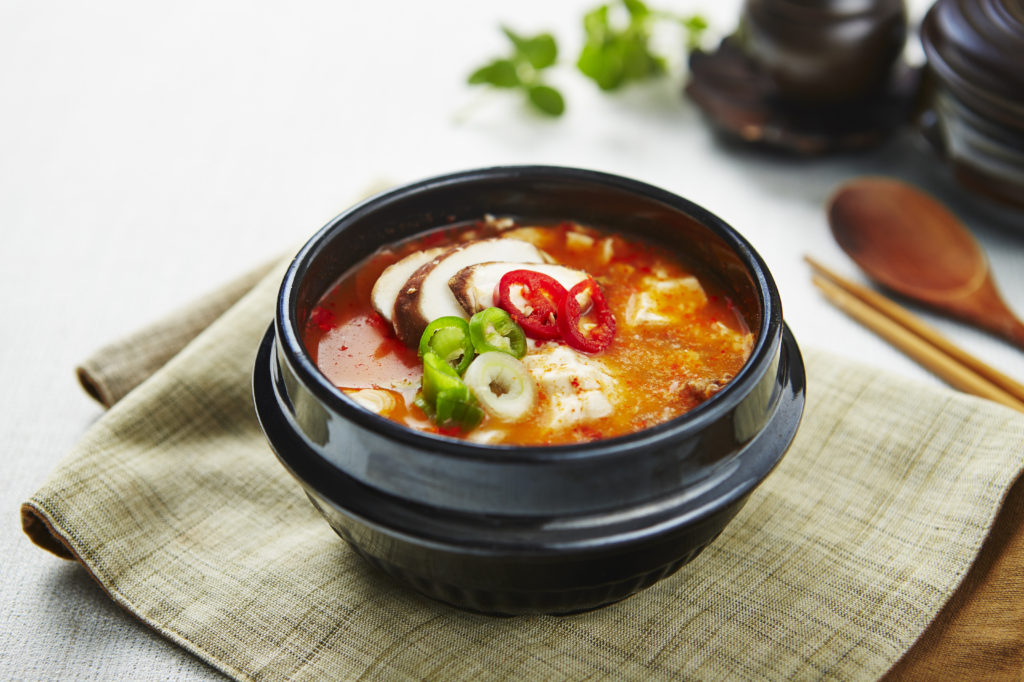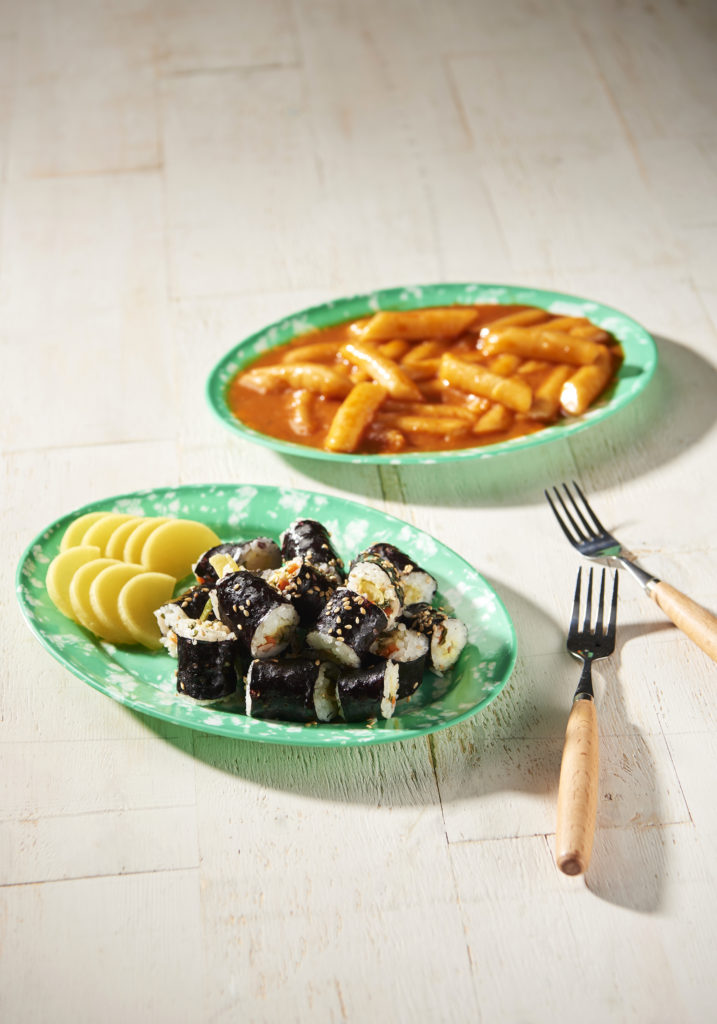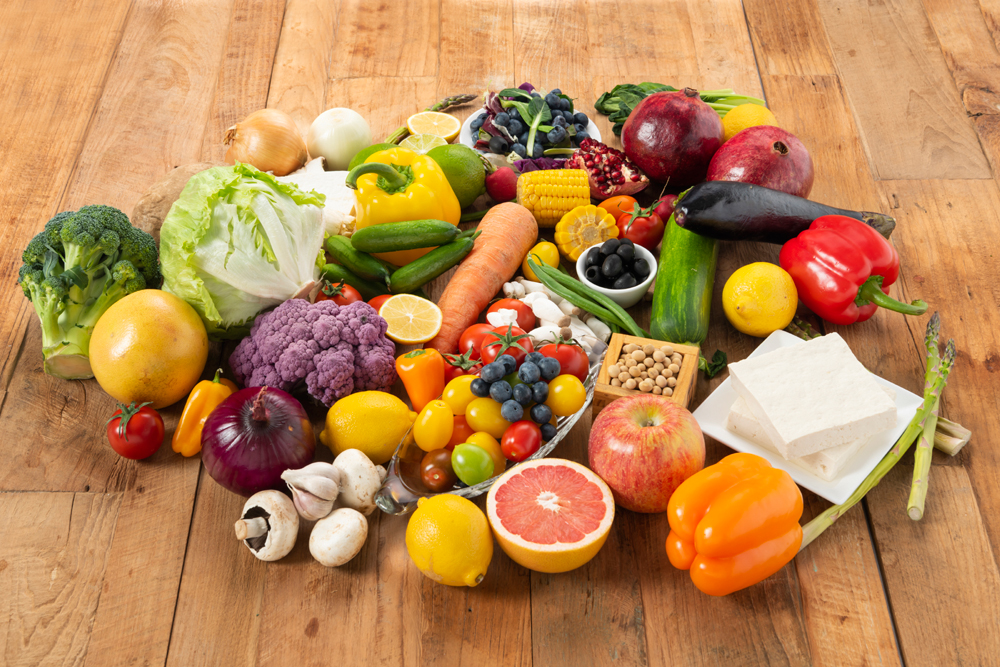The Vegetarian Experience In Jeollanam-do & Gwangju
Written by Michael Goonan.
Most people would say that Korea is not an easy place to be a vegetarian. The national cuisine is based heavily on meat and seafood, and in much of the country, the concept of vegetarianism is unknown, misunderstood, or thought to be very exotic. Some Koreans might be familiar with vegetarianism in the context of Buddhism, but the vast majority of Buddhists in Korea are meat-eaters, with ordained monks being the primary exception. While Seoul offers many vegetarian dining options given the large number of foreigners living there, a vegetarian diet can seem especially tricky to navigate in smaller cities like Gwangju or in the rural towns of Jeollanam-do.
Last year, I made the decision to go vegetarian as a New Year’s resolution. I had previously been vegetarian back in the States from 2011 to 2013 but got away from it for a few years in favor of pescetarianism. I will not lie to you: Being a vegetarian around these parts definitely requires commitment and planning. But while it may take some getting used to, it is definitely possible to maintain a delicious vegetarian diet in Jeollanam-do. It is simply a matter of knowing the resources at your disposal and making the most of them. After nearly a year of trial and error, I can honestly say that I am very comfortable in my vegetarian routines and, to paraphrase Frank Sinatra, “If I can make it here, I can make it anywhere!”
Here are some of my suggestions for making a vegetarian diet work in Jeollanam-do.
Grocery Shopping (The Internet Is Your Friend!)
To be truly happy as a vegetarian in most of Jeollanam-do, I believe it is necessary to cook at home. Do not get me wrong. Bibimbap, sundubu-jjigae, and kimbap are all tasty, healthy Korean meals that are widely available and easily made vegetarian. But unless you are the type of person who really loves your routine, you are going to get sick of them and want some variety in your diet.

Korean grocery stores are, of course, full of tofu and fresh vegetables. This can help you make lots of great stir fries and Korean, Chinese, or other Asian-style dishes at home. You do not have to be limited by what is available at your local Nonghyup or farmer’s market, though. Here are some great online resources to help stock your fridge with all your vegetarian ingredients.
Expat Mart: This Indian grocery store in Seoul offers a wide variety of ingredients for home cooking, including bulk dal (lentils), basmati rice, fresh and frozen naan and roti, paneer, fresh vegetables, and a huge selection of Korean spices. They also offer lots of pre-packaged or canned curries for when you are in a hurry, as well as a rotating selection of items from Costco such as bulk cheese and whole-wheat pasta. Everything can be delivered to your door within a day or two of your order. The website is expatmart.co.kr.
Gmarket: Gmarket has lots of vegetarian foods available. I regularly buy chickpeas, hummus, and feta cheese from this website to make some of my favorite Mediterranean-style meals. Many items you are looking for will be easily found with a quick search.
Two of my favorite “shops” on the site are those of Loving Hut and Vege Food. Loving Hut is an international chain of vegan restaurants. Vege Food is a Korean supplier of vegan foods. From their Gmarket stores, you can order vegan versions of various Korean dishes such as samgyeopsal, vegetarian dumplings, and soy “pork” cutlets.
- Loving Hut Website: http://gshop.gmarket.co.kr/Minishop/GlobalMinishop?CustNo=TI0MR38zNzMxNkxxNjYzNDQ1OTF/Rw==
- Vege Food Website: http://gshop.gmarket.co.kr/Minishop/GlobalMinishop?CustNo=TE0MR38TNzcxNk3xNzYxNDI1NjF/Rw==
Mogo Eats: This is a great resource for those who are learning to cook. Mogo Eats offers plant-based meal kits with simple instructions to make meals at home. It offers Korean and well as Western fare, ranging from vegan bulgogi to mushroom stroganoff pasta, tacos, and Thai coconut curry.
Website: https://www.mogoeats.co.kr/en/
Restaurants in Gwangju Suitable for Vegetarians
Sujata: This amazing vegetarian buffet is located at the foot of Mudeung Mountain, right next to a small Buddhist temple. For the incredible value of 7,000 won per person, you can enjoy an all-you-can-eat buffet of possibly the best vegan food to be found this side of Seoul. Enjoy perfect vegan versions of your favorite Korean foods, as well as a full salad bar and various other creations that seem to be based on Chinese cooking. They also sell bulk kimchi, lentils, and other ingredients that you can cook at home. I cannot recommend this place highly enough!
Address: 3 Dongsan-gil, 7-beon-gil, Dong-gu, Gwangju 61494
Website: https://www.tripadvisor.com/Restaurant_Review-g304129-d8737469-Reviews-Sujata-Gwangju.html

First Nepal: This Nepalese/Indian restaurant in Dong-gu has a wide variety of vegetarian options, including Palak Paneer, Dal Makhani, and Chana Masala. They have great samosa and appetizers as well. Many vegetarians swear by South Asian cooking, and this is the place to get your fix in Gwangju.
Address: Seoseok-ro, 7-beon-gil, 6-44, Gwangju
The First Alleyway: The expat’s main hangout in Gwangju has a number of vegetarian options on the menu. Their full slate of burgers can be made with a satisfying falafel burger. My personal favorite is the Tex-Mex inspired “Gringo” burger. A variety of salads are offered as well, and a garden pizza is also available.
Address: Gwangju, Dong-gu, Chungjang-ro An-gil 5-4
Tips for Ordering at Korean Restaurants
Plenty of delicious Korean dishes can be made vegetarian. Some of my favorites are 비빔밥 (bibimbap, mixed rice and vegetables), 순두부 찌개 (sundubu jjigae, spicy soft tofu and vegetable stew), and 파전 (pajeon, fried Korean pancakes). More often than not, however, there is going to be meat or seafood in it unless you specify exactly what you don’t eat.. This is true even when you order something like 야채 김밥 (yachae gimbap, vegetable kimbap), which customarily includes a stick of spam. Even if you say “야채 김밥 고기 빼주세요” (literally, “vegetable kimbap without meat”), you are still likely to end up with spam in your kimbap. Spam is a “flavor” in the minds of most Koreans, and is not considered “meat.” The same goes for imitation crab meat: That is considered a “flavor” also. You will need to be specific about the fact that you do not eat it.
Here are some Korean phrases that will be useful for avoiding surprise meat on your plate. When in doubt, be extra specific. Saying “X dish without meat” is not always going to be enough to get your point across. If you are like me and frequent the same restaurants, the workers will get to know your diet, so you will not need to explain anymore.
Useful Phrases for Vegetarians
저는 채식주의자입니다 I am a vegetarian.
고기 빼주세요 Please remove the meat.
계맛살 빼주세요 Please remove the crab meat.
햄 빼주세요 Please remove the ham.
해물 빼주세요 Please remove the seafood.
생선 빼주세요 Please remove the fish.
조개류 빼주세요 Please remove the shellfish.

A Note About Purity
Despite your best intentions, it is likely that at some point you are going to screw up. Do not be too hard on yourself. Especially if you are not proficient in the language and do not know the cuisine well, you will likely accidentally end up with some meat side dishes that you have not asked for, unintended seafood stock in what you thought was a vegetable soup, or kimchi that was made with fish sauce. You can do your best to avoid these things, but the only surefire way to do so in Jeollanam-do would be to cook all of your meals at home or to eat only at vegetarian restaurants. This is especially true for vegans.
Ultimately, the way one chooses to navigate these inevitable challenges is a very personal ethical decision. Whenever being a vegetarian in Korea is feeling difficult, I like to remind myself of the philosopher Peter Singer’s words from his classic book Animal Liberation: “The point of altering one’s buying habits is not to keep oneself untouched by evil, but to reduce the economic support for the exploitation of animals and to persuade others to do the same.” I find this helpful because it keeps me focused on why being a vegetarian is important to me: protecting living beings from suffering as much as possible, and not simply feeding my ego or copping out by thinking I need to be perfectly pure in order for my efforts to be worth it. This may or may not jive with your own way of thinking about these things, but it has certainly helped me make this whole thing work in a meat-loving country like Korea.
The Author
Michael Goonan teaches English at Baeksu Elementary School in Yeonggwang. Originally from Scranton, Pennsylvania, he has also lived in the Czech Republic, New Zealand, Australia, and the Netherlands. He blogs about travel, culture, politics, and more at Goonan.us.







